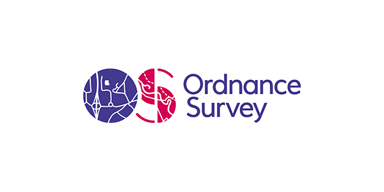Ensuring responsible use of AI at Ordnance Survey
We want AI to be effective and drive positive change, and we commit to using it responsibly.
With any new technology comes responsibility. Ordnance Survey (OS) has committed to an AI charter, containing a list of eight principles, that emphasises a holistic approach to responsible AI usage and encompasses technical, ethical, and societal focus.
As AI tools have become more accessible, so has the pressure on organisations to exploit their use to leverage any efficiency advantages they may offer over the competition. OS has a responsibility however, to our customers and to the UK government as the national geospatial authority; while we want AI to be effective and drive positive change, we must commit to using AI responsibly.
OS's eight areas for responsible AI implementation
OS has therefore created the following eight principles to guide and inform responsible AI implementation. By adhering to these principles, we aim to promote the development and deployment of AI technologies that benefit society, while minimising potential harm:
1. Deeds not words
We commit to adhering to established principles, guidelines, governance processes, regulations, and standards related to responsible AI. And should we consider instances where such frameworks may be lacking, we will collaborate with experts, decision-makers, and stakeholders to develop them.
2. Good governance
We pledge to continuously monitor, enhance, and document our AI systems across five critical dimensions:
- Explainability, Interpretability, and Reproducibility
- Accountability (including audit trails)
- Diversity, Non-discrimination, and Fairness
- Technical Robustness and Safety
- Privacy and Security
3. Harms aware
Our commitment extends to evaluating the potential harms arising from AI, and we will regularly assess the potential impacts of AI on physical and mental health, opportunities, livelihoods, as well as cultural, civil, and human rights.
4. Every stakeholder counts
We recognise and uphold the rights of all stakeholders affected by our AI systems, including individuals, communities, society, the environment, and particularly vulnerable groups with limited power or voice. We will actively seek insights and understanding from those impacted by our AI initiatives.
5. Whole pipeline
Our responsibility spans every stage of the AI lifecycle, across induction, design, development, testing, and deployment. We will ensure that responsible AI considerations are integrated into each and every phase.
6. Whole stack
Acknowledging that AI encompasses more than just the model, we commit to addressing the broader ecosystem including data, code, algorithms, platforms, infrastructure, and organisational practices. We will prioritise documentation, scrutiny, and governance across the entire AI stack.
7. Whole system
We will critically examine the purpose and scope of AI systems, emphasising not only the final product but also the underlying processes, parameters, and impacts on stakeholders. Our scrutiny will extend to the broader societal implications of AI deployment.
8. Responsibility first
We will prioritise responsibility over technical capabilities, ensuring that our AI systems align with our capacity to fulfil commitments to responsible AI. This includes setting and adhering to constraints such as time, storage, computation, and documentation budgets.
Looking ahead
Ordnance Survey has always actively adopted technology advances, to deliver the desired business objectives. AI is the latest advancement, and as with any emerging technology it is always important to balance curiosity and enthusiasm with understanding and care.
OS has created this charter of responsible AI to ensure the organisation is neither left behind, nor rushes into something unexpected. The charter has been developed with consideration of the guidance from various institutions. For example, in the context of geospatial data use, The Locus Charter has developed a list of 10 principles for ethical use of geospatial data. OS is now a signatory of the Locus Charter.
Looking ahead, OS is dedicated to operating within the principles outlined in our responsible AI charter. We are actively integrating machine learning into the development of our products, with a dual focus: enhancing the efficiency of internal processes and improving the discoverability and adoption of our offerings.
Our commitment also extends beyond adoption; we aim to provide practical solutions and frameworks across our business, ensuring responsible AI becomes an integral part of our operations.
Further support
For further help about how our data can transform your organisation, contact us today

Our highly accurate geospatial data and printed maps help individuals, governments and companies to understand the world, both in Britain and overseas.